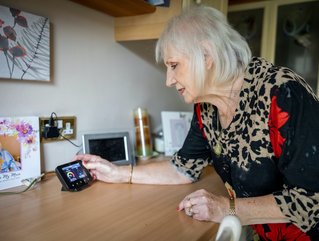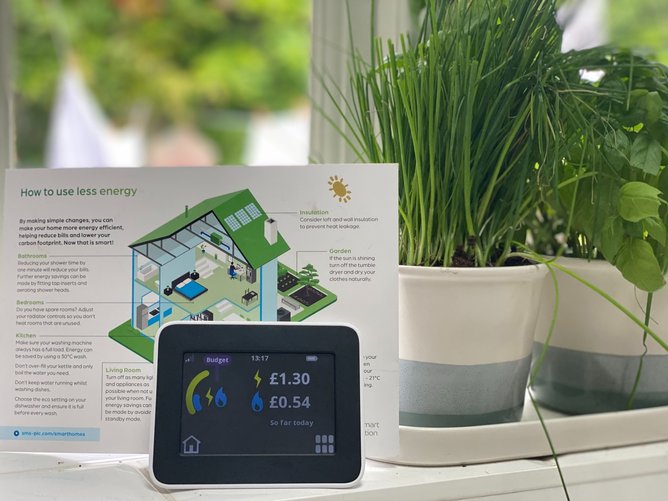Vodafone 4G network to advance Britain’s net zero goals

The world’s second-largest mobile phone company’s partnership in operating 4G-managed IoT connectivity is set to substantially cut emissions from British homes.
Vodafone’s services, along with the Data Communications Company (DCC), will support connectivity for Britain’s smart meter network.
How will Vodafone and the DCC’s partnership help Britain’s work towards net zero?

Vodafone’s IoT connectivity will enhance the connectivity of millions of homes and small businesses by helping cut their energy usage, and allow the grid to make the most of renewable energy generation.
This is also part of Vodafone’s efforts for its UK operations to be net zero by 2027. It already uses 100% renewable electricity, and a significant proportion of its energy requirement will be generated in the UK by 2025.
For the project, the IoT connectivity will use Vodafone’s 4G network, which already reaches more than 99% of the population, ensuring more can switch to a smart meter, manage their energy usage better and reduce their bills - all while playing their part in reducing the country’s overall energy consumption.
Nick Gliddon, UK Business Director at Vodafone, championed how the move underlines Vodafone’s commitment to decarbonisation. “As a global leader in IoT, and with extensive experience in delivering reliable connectivity to the utilities industry in the UK, this agreement leverages the strengths of Vodafone,” he said. “By helping the DCC deliver on its strategy, we’re supporting the development, management, and optimisation of energy assets and so helping the UK work towards its net zero targets.”
As part of the services agreement, which is for up to 15 years, Vodafone will provide a new Wide Area Network. The network of information of a large geographic area will connect the DCC’s servers with its Long-Term Evolution Communication Hubs that are in Britain’s homes.
Vodafone will provide the 4G LTE network, with connectivity management delivered by its IoT platform, supported by IT and business consulting services firm CGI who will be responsible for software development.
Britain’s greenhouse gas emissions

The DCC, which manages Britain’s national smart meter network, already reduces emissions by 1 million tonnes a year. Nationwide, households are one of the biggest emitters of greenhouse gases, accounting for 26% of the UK’s total emissions.
Angus Flett, CEO of the DCC, said: “The smart meter network is a key part of the nation’s journey to reach net zero carbon emissions by 2050. 4G is a natural next step for our connectivity. This partnership with Vodafone is an important part of continuing the DCC’s mission to connect Britain so we can all lead smarter, greener lives.”
******
For more insights into the world of Mobile - check out the latest edition of Mobile Magazine and be sure to follow us on LinkedIn & Twitter.
Other magazines that may be of interest - Data Centre Magazine.
Please also check out our upcoming event - Cloud and 5G LIVE on October 11 and 12 2023.
******
BizClik is a global provider of B2B digital media platforms that cover Executive Communities for CEOs, CFOs, CMOs, Sustainability leaders, Procurement & Supply Chain leaders, Technology & AI leaders, Cyber leaders, FinTech & InsurTech leaders as well as covering industries such as Manufacturing, Mining, Energy, EV, Construction, Healthcare and Food.
BizClik – based in London, Dubai, and New York – offers services such as content creation, advertising & sponsorship solutions, webinars & events






